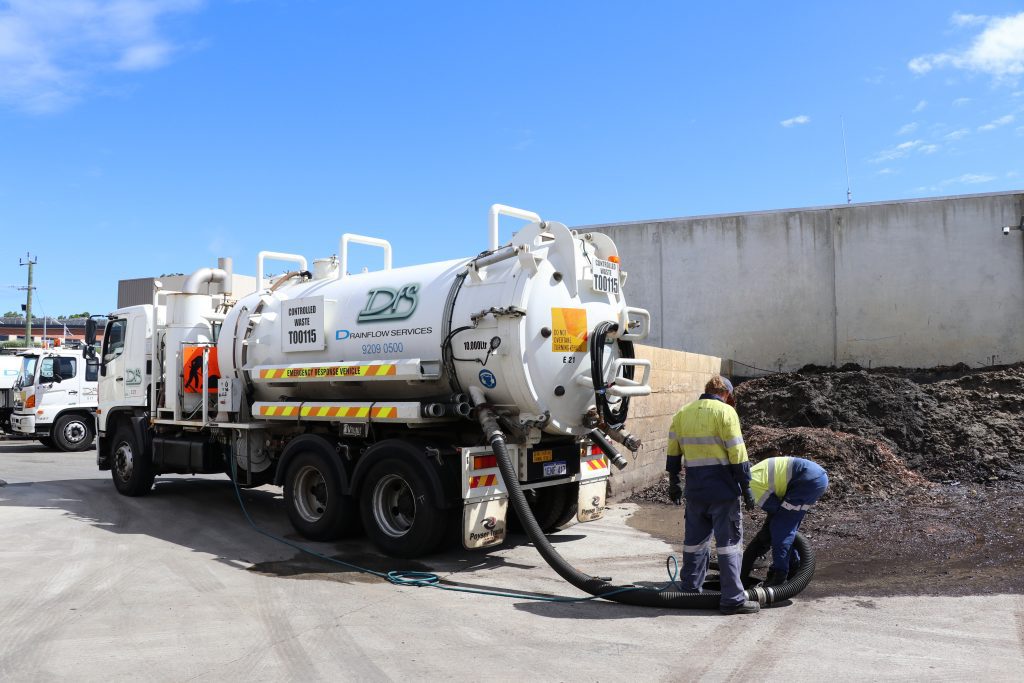Reclaim Waste - The Facts
Reclaim Waste - The Facts
Blog Article
Reclaim Waste for Beginners
Table of ContentsGetting The Reclaim Waste To WorkGetting The Reclaim Waste To WorkThings about Reclaim WasteReclaim Waste Can Be Fun For EveryoneThe smart Trick of Reclaim Waste That Nobody is Discussing
Check out the types, events, and forms of fluid waste. Domestic sewer waste refers to the waste and items from a household sewage-disposal tank. This kind of waste is developed by people in houses, institutions, and various other buildings. This only consists of septic tanks that have a drainpipe area. The proper management and disposal of residential sewage waste need liquid waste to be moved to a sewer therapy plant where the correct methods and devices are put on detoxify and throw away waste.
Industrial waste typically consists of potential risks, such as combustible materials or a mix of fluid and strong waste products, and requires an advanced and comprehensive disposal procedure. The disposal of business waste typically includes the filtering of waste prior to transport to ensure risk-free and correct disposal. Industrial waste is created from byproducts and overflow of industrial processes and manufacturing.
This kind of waste can not utilize the very same sewage administration transportation or procedures as septic or business fluids. The commercial waste monitoring procedure calls for the inspection and testing of liquid waste before it undergoes the disposal process (liquid waste disposal). Overflow waste is the liquid waste that comes from drainage and excess stormwater in very booming locations or cities
Drainage waste can trigger contamination and flooding otherwise taken care of effectively. Discover more about sewage system cleansing and waste monitoring. Ensuring correct waste management can avoid disasters and lower ecological damage. Both individuals in residential setups and professionals in commercial or production sectors can benefit from recognizing the processes and guidelines of liquid waste management.
Rumored Buzz on Reclaim Waste
Contact PROS Providers today to find out about our waste administration and disposal solutions and the proper methods to care for the liquid waste you generate.
(https://www.pageorama.com/?p=reclaimwaste1)This supposed 'wastewater' is not only an important source but, after therapy, will certainly be released to our land, rivers or the sea. Made use of water from toilets, showers, baths, cooking area sinks, laundries and industrial processes is recognized as wastewater.

water utilized to cool down machinery or clean plant and devices). Stormwater, a form of wastewater, is overflow that moves from agricultural and metropolitan locations such as roofing systems, parks, yards, roads, courses and gutters into stormwater drains pipes, Your Domain Name after rain. Stormwater streams neglected straight to neighborhood creeks or rivers, eventually reaching the ocean.
The Buzz on Reclaim Waste
In Queensland, most wastewater is treated at sewer therapy plants. Wastewater is transported from residential or commercial sites through a system of sewers and pump stations, recognized as sewage reticulation, to a sewer treatment plant.
The Department of Natural Resources advises city governments concerning managing, operating and maintaining sewerage systems and therapy plants. In unsewered areas, local federal governments may require owners to install private or household sewer treatment systems to deal with domestic wastewater from toilets, kitchens, washrooms and washings. The Department of Natural Resources authorizes using home systems when they are proven to be reliable.
In some new class, treatment of some stormwater to eliminate clutter, sand and crushed rock has begun using gross contaminant catches. Wastewater therapy occurs in 4 stages: Eliminates strong issue.
Wastewater after that flows into huge containers where solids resolve and are gotten rid of as sludge. Oil and residue are skimmed from the surface area. Utilizes little living organisms called micro-organisms to damage down and eliminate continuing to be dissolved wastes and fine bits. Micro-organisms and wastes are included in the sludge. Removes nitrogen and phosphorus nutrients that might create algal blooms in our waterways and endanger marine life.
The 30-Second Trick For Reclaim Waste
Nutrient removal is not readily available in all sewer therapy plants due to the fact that it requires expensive specialised equipment. It is becoming more common in Queensland. Clear liquid effluent created after treatment might still have disease-causing micro-organisms. If this effluent is launched into rivers such as rivers or the sea, the micro-organisms will ultimately die out.

This usually means wastewater has actually to be dealt with or impurities gotten rid of prior to it can be released to waterways. Most wastewater moves into the sewerage system. Under the Act, city governments carry out authorizations and licences for eco pertinent activities (Periods) entailing wastewater releases that could have a regional impact. The division provides approvals and permits to ERAs including wastewater launches that could have a regional or statewide impact.
Reclaim Waste - An Overview
Monitoring offers factual information about water quality and can verify that permit conditions are being fulfilled. The details gotten via tracking supplies the basis for making water high quality decisions.
Report this page